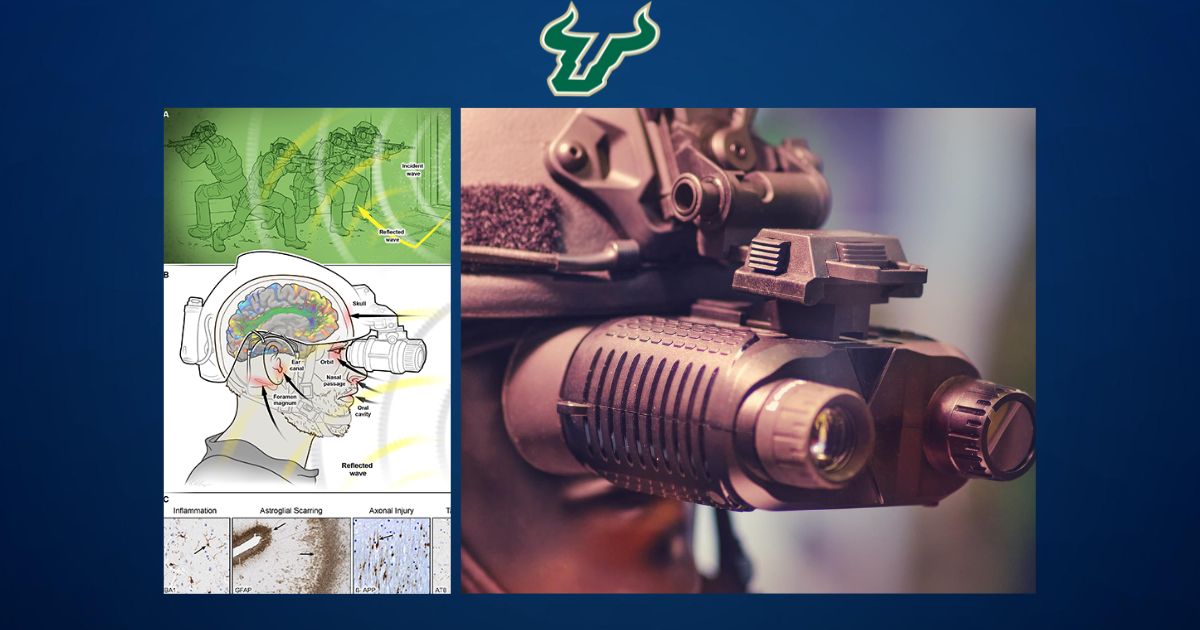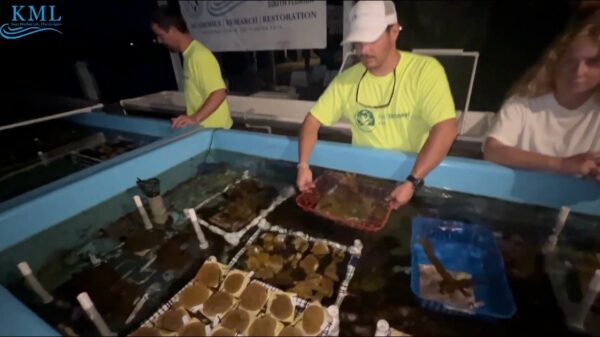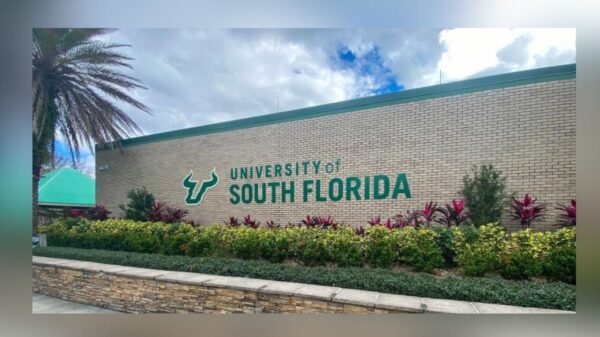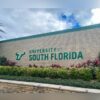By Tina Meketa, University of South Florida Communications and Marketing
Results from a key study led by the University of South Florida about potential brain injuries in members of the military are driving significant new investment from the U.S. Department of Defense – reinforcing the vital role of academic research in solving some of the nation’s most critical challenges.
The USF Institute of Applied Engineering has been awarded $2 million each year for the next four years to expand its research with U.S. Special Operations Command, headquartered in Tampa, and Mass General Brigham. The study will explore how exposure to repeated low-level blasts is associated with signs of potential brain injury in special operations forces who frequently encounter these conditions in training and combat environments.
The initial study published in the Proceedings of the National Academy of Sciences was coordinated by IAE program director Samantha Tromly and a multidisciplinary team that collected data over three years from 30 active-duty operators who had extensive prior combat experience and reported high levels of cumulative blast exposure.
Their findings revealed that higher self-reported blast exposure was associated with changes to the structure, function and neuroimmunology of the brain, as well as lower health-related quality of life. Often these changes are not detected by conventional diagnostic methods, such as MRI scans, blood tests and neurocognitive measures.
This latest wave of funding will allow USF researchers to scale their study to 100 participants over the next four years, utilizing advanced brain imaging, blood tests and neurobehavioral analysis to further investigate the link between blast exposure and conditions such as cognitive impairment, memory loss, PTSD, anxiety and depression.
“The University of South Florida’s strategic emphasis on global and national security and our long-standing partnership with USSOCOM continues to bear fruit in extremely meaningful ways,” said Darren Schumacher, president and CEO of the Institute of Applied Engineering.
The impact of this research extends far beyond the lab. By identifying shared biomarkers in active-duty special operations forces with repeated blast exposure, USF is helping pave the way for development of portable diagnostic tools for rapid field detection and new therapies to protect and treat military personnel. These advancements will strengthen the military’s ability to mitigate repeated blast exposure – better protecting and preserving the health of its armed forces.






















